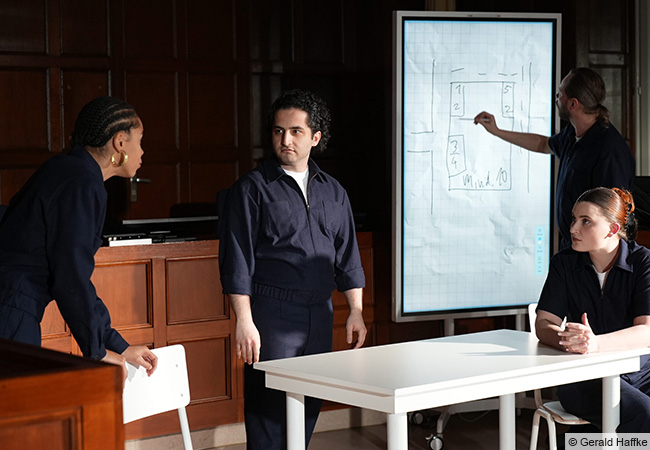In response to the occurrence of the novel coronavirus (SARS-CoV-2), Goethe University’s Executive Board has created a crisis unit. The crisis unit is in charge of coordinating what at present are solely preventive measures. This communication provides information on mobility and healthcare based on recommendations of the Robert-Koch-Institute and the Foreign Office.
Mobility:
The Executive Board urgently recommends foregoing study visits in high-risk areas at this time, even if no official travel warning has been issued by the Auswärtige Amt (Foreign Office). Please check indepedently whether travel warnings have been issued and keep yourself informed through the website of the International Office at Goethe University, or contact their staff if a study-related visit abroad is planned. The Executive Board requests anyone returning from a a trip to a high-risk area to self-quarantine at home for 14 days in order to minimize the risk of infection to the community at large. If this affects study credits or exams, you must provide appropriate verification that you returned from a trip to a high-risk area and are therefore self-quarantining for 14 days.
A daily updated list of high-risk areas with regard to coronavirus can be found on the website of the Robert Koch Institute (in German).
Protection against infection
To reduce the risk of infection with coronavirus, the same recommendations apply as for the influenza and other respiratory illnesses. In particular:
- Good hand hygiene (thorough washing with soap and water; avoid touching your face), Information from the Robert Koch Institute (in German).
- Etiquette for coughing and sneezing (sneeze or cough into the crook of your arm, not into your hand)
- Maintain distance from those who are sick (approximately 1 to 2 metres)
Face masks: If it is necessary for someone with an acute respiratory infection go out in public, it can be advisable for that person to wear a face mask to reduce the risk of infection to others (protection of others). However, there is not adequate evidence to show that a healthy person wearing a face mask reduces his or her risk of infection (no self-protection). According to information from WHO, wearing a face mask in situations other than those in which it is recommended may provide a false sense of security. This can lead to the neglect of crucial hygienic measures such as good hand hygiene. See: Bundeszentrale für gesundheitliche Aufklärung. (Federal Centre for Health Education)
Disinfectants: If the above measures are observed, the additional use of disinfectants is not necessary.
Vaccination: Influenza causes symptoms similar to SARS-CoV-2; the current northern hemisphere flu vaccine is recommended. In addition to having a personal protective effect, the vaccination helps avoid the occurrence of unnecessary suspicious cases and the ensuing stress on healthcare institutions. We further recommend making sure your vaccination status is up-to-date, i.e., regarding measles, diphtheria, polio, and rubella (e.g., with your family physician).
Contact in daily university routine:
To minimize the risk of infection, we request that you contact service facilities such as the Studien-Service-Center or the International office per email or telephone if possible at this time.
Whether large university events might have to be postponed due to the coronavirus will be decided at this time case-by-case by the crisis unit based on current developments. If developments lead to a fundamental change in the basis for evaluation, we will immediately inform you through the website.
What will happen if coronavirus cases occur at Goethe University? If coronavirus infections occur at Goethe University, events may be cancelled and partial closures may be ordered.
For those affected by the closure of schools,
preschools, etc.
If you can not attend classes or take exams because you have to take over the
care of your minor children due to the closure of schools/preschools etc., please
inform the Examination Office. Verification of the closure must be submitted,
but this can also be provided after the fact.
Further information:
Further information (in German) on the current risk evaluation for coronavirus infections, hygienic recommendations and FAQs can be found on the websites of the Robert Koch Institute and the Federal Centre for Health Education.
FAQs in English can be found on the website of the European Centre for Disease Protection and Control.
The state of Hesse has set up a citizen’s hotline for questions on the coronavirus: Telephone: 0800 5554666, Monday through Friday from 8:00 am to 8:00 pm.







